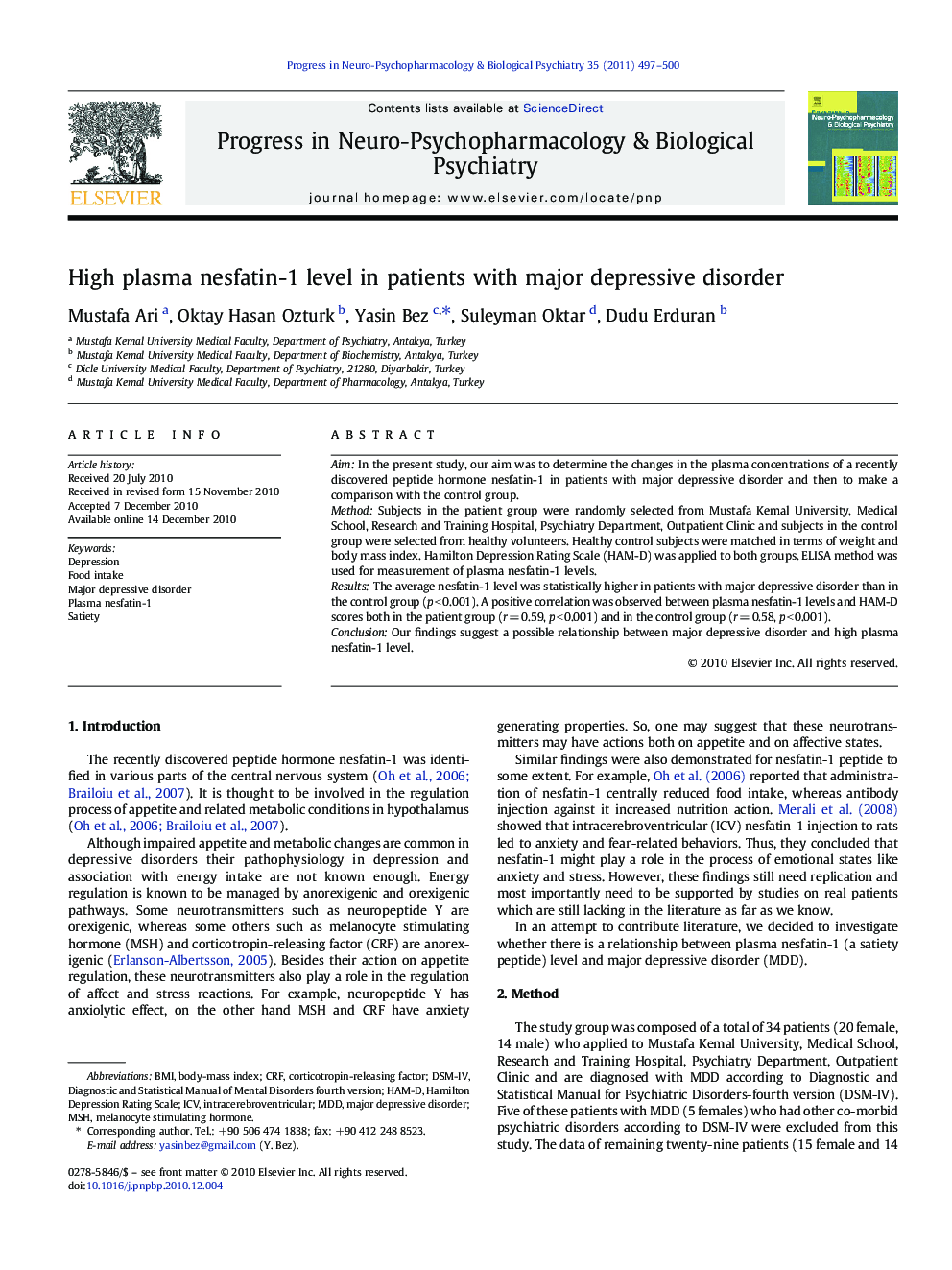| Article ID | Journal | Published Year | Pages | File Type |
|---|---|---|---|---|
| 5845168 | Progress in Neuro-Psychopharmacology and Biological Psychiatry | 2011 | 4 Pages |
AimIn the present study, our aim was to determine the changes in the plasma concentrations of a recently discovered peptide hormone nesfatin-1 in patients with major depressive disorder and then to make a comparison with the control group.MethodSubjects in the patient group were randomly selected from Mustafa Kemal University, Medical School, Research and Training Hospital, Psychiatry Department, Outpatient Clinic and subjects in the control group were selected from healthy volunteers. Healthy control subjects were matched in terms of weight and body mass index. Hamilton Depression Rating Scale (HAM-D) was applied to both groups. ELISA method was used for measurement of plasma nesfatin-1 levels.ResultsThe average nesfatin-1 level was statistically higher in patients with major depressive disorder than in the control group (p < 0.001). A positive correlation was observed between plasma nesfatin-1 levels and HAM-D scores both in the patient group (r = 0.59, p < 0.001) and in the control group (r = 0.58, p < 0.001).ConclusionOur findings suggest a possible relationship between major depressive disorder and high plasma nesfatin-1 level.
Research Highlights⺠Mean plasma nesfatin-1 peptide level is higher in patients with major depressive disorder than healthy control subjects. ⺠Positive correlation is present between plasma nesfatin-1 levels and Hamilton Depression Rating Scale scores. ⺠Nesfatin-1 may play a role in some active neurobiological mechanisms related with depression.
